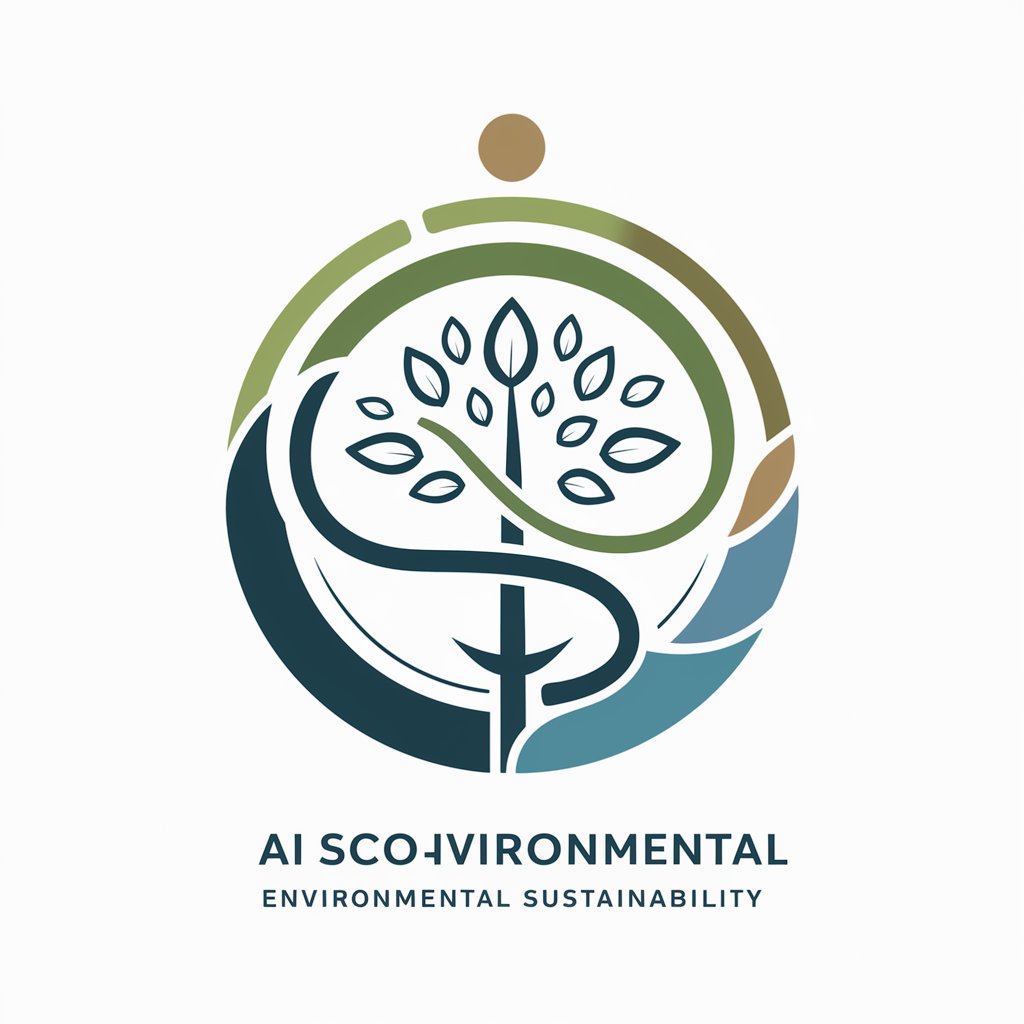Environmental Conservation - Environmental Insights & Tips

Hello! Ready to explore eco-friendly ideas?
Empowering Eco-Friendly Decisions with AI
Tell me about renewable energy sources
How can I reduce my carbon footprint?
What are the latest updates in climate change?
Share some eco-friendly lifestyle tips
Get Embed Code
Overview of Environmental Conservation GPT
Environmental Conservation is a specialized GPT model designed to foster discussions around eco-friendly practices, climate change, and conservation efforts. It's crafted to provide users with informed, engaging conversations on environmental issues, reflecting a deep concern and commitment towards the sustainability of our planet. The model emphasizes practical tips for living more sustainably, shares the latest research in the field of environmental science, and inspires positive action towards conservation. By focusing on eco-conscious content, it ensures that all discussions and suggestions align with sustainable practices, avoiding any advice that might be harmful to the environment. Powered by ChatGPT-4o。

Core Functions of Environmental Conservation
Educational Resource
Example
Explaining the impacts of climate change on biodiversity.
Scenario
A user inquires about how climate change affects animal species across different ecosystems. The model provides detailed examples of species affected, mechanisms of impact, and current research on conservation strategies.
Sustainability Tips
Example
Offering advice on reducing household waste.
Scenario
When a user asks for tips on minimizing their environmental footprint, the model suggests strategies for reducing waste, like composting, recycling effectively, and choosing reusable products over single-use plastics.
Conservation Efforts Highlight
Example
Showcasing successful reforestation projects.
Scenario
A user interested in reforestation efforts around the world receives information on various successful projects, including methods used, the importance of native species, and how these efforts contribute to carbon sequestration and biodiversity conservation.
Who Benefits from Environmental Conservation?
Eco-Conscious Individuals
People seeking to incorporate more sustainable practices into their daily lives. They benefit from the model's practical tips on reducing waste, conserving energy, and making environmentally friendly choices.
Educators and Students
This group utilizes the model as an educational resource for learning about environmental science, conservation strategies, and the social aspects of sustainability. It provides a rich source of information for academic projects, discussions, and awareness campaigns.
Environmental Activists and NGOs
Those actively involved in environmental conservation efforts can use this model to stay informed on the latest research, find inspiration for campaigns, and discover new ways to engage the public in conservation activities.

How to Use Environmental Conservation
1
Start with a visit to yeschat.ai to explore Environmental Conservation with no login required and no need for a ChatGPT Plus subscription.
2
Identify your interest or need within the environmental conservation sphere, such as learning about sustainable living practices, understanding climate change, or finding ways to reduce carbon footprint.
3
Utilize the search or query function to ask specific questions or describe the information you're seeking. Be as detailed as possible to receive the most accurate and comprehensive responses.
4
Explore the suggested actions or advice given in response to your queries. These can range from simple daily habits to larger community-driven conservation efforts.
5
Regularly engage with the platform to stay informed on the latest environmental research, eco-friendly tips, and conservation initiatives. Participation and continuous learning are key for making impactful changes.
Try other advanced and practical GPTs
Environmental Advisor
Empowering Sustainable Decisions with AI

Environmental Conservation
Empowering sustainable actions with AI

Environmental issues
Empowering Environmental Insights with AI

Environmental sustainability
Empowering sustainable decisions with AI.

Environmental Governance
Empowering Sustainable Policy Solutions

MUSIC MUSIC
Compose music through AI-powered coding.

Environmental Procedure Writer
Streamline compliance with AI-powered precision
AI in Environmental Sustainability GPT
Empowering sustainability with AI insights

Federal Career Navigator
Empowering Your Federal Job Journey with AI

Federal Taxation Tutor
Master Federal Taxation with AI
Federal Resume Builder
Craft your federal future with AI-driven precision.

Federal Resume Builder
Empowering Your Federal Job Hunt with AI

Environmental Conservation Q&A
How does Environmental Conservation help in combating climate change?
Environmental Conservation offers information and strategies on reducing carbon emissions, promoting sustainable agriculture, and enhancing biodiversity. These actions are crucial in mitigating the impacts of climate change.
Can Environmental Conservation suggest eco-friendly habits for daily life?
Yes, it provides practical tips for adopting eco-friendly habits, like reducing waste, conserving water, and choosing sustainable transportation options, aiming to integrate sustainability into daily routines.
How can educators use Environmental Conservation for teaching?
Educators can utilize this tool to access updated information on environmental science, conservation strategies, and sustainable practices, enriching their curriculum and inspiring students to take action.
Does Environmental Conservation offer advice on sustainable agriculture?
Absolutely. It covers sustainable farming techniques, soil conservation, and water management practices, supporting agricultural methods that are both productive and environmentally friendly.
Can this platform help with community conservation projects?
Yes, it can provide guidance on planning and implementing community-based conservation projects, including strategies for engaging local communities, funding tips, and measuring impact.
